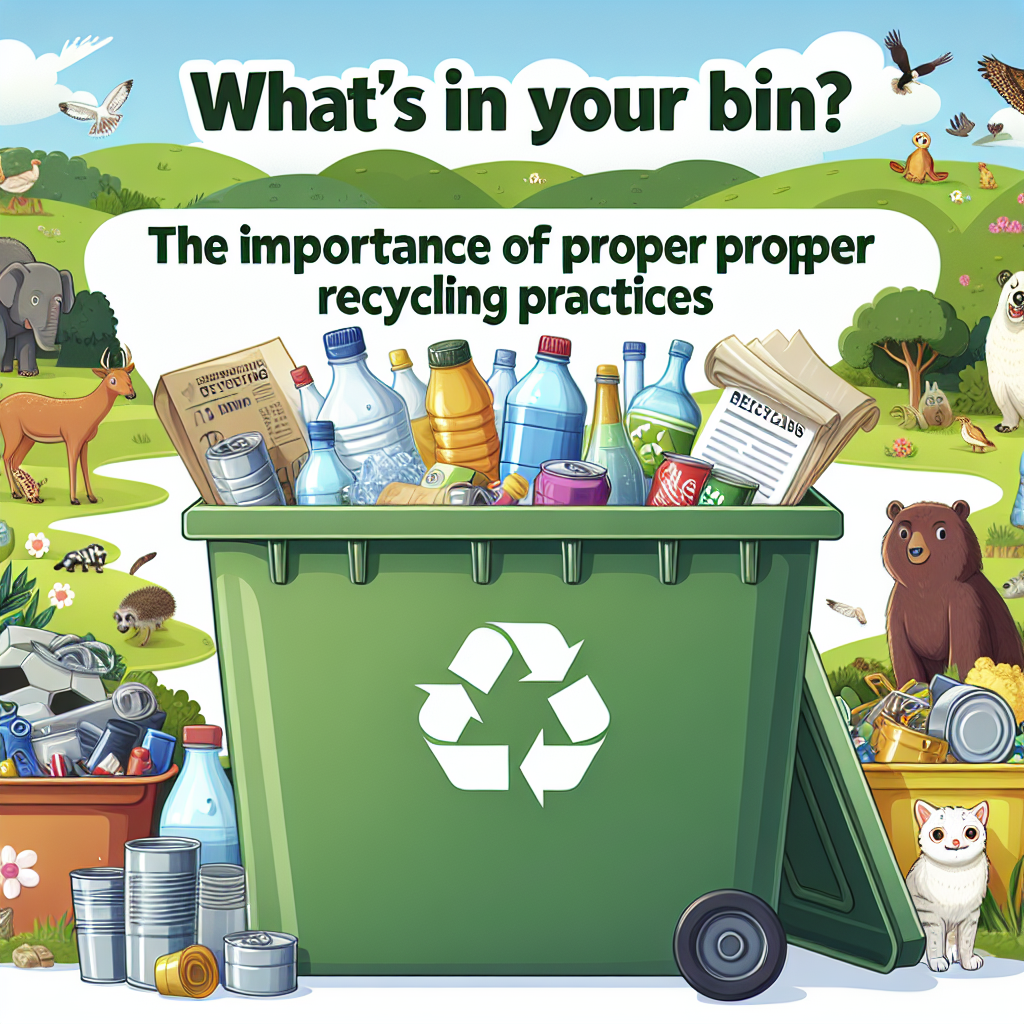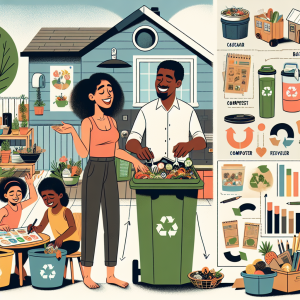As environmental awareness grows, so does the conversation about recycling and waste management. Recycling is often viewed as a simple act: toss your plastics and papers into the blue bin, and you’re good to go. However, understanding what belongs in your recycling bin—and what doesn’t—is crucial for effective recycling practices that can significantly affect the environment.
Understanding the Basics of Recycling
At its core, recycling is the process of converting waste into reusable material. This reduces the consumption of fresh raw materials, minimizes energy usage, decreases greenhouse gas emissions, and conserves natural resources. However, improper recycling can lead to contamination, making entire loads of recyclables worthless and often ending up in landfills instead.
Why Contamination Matters
Contamination occurs when non-recyclable items are mixed in with recyclable materials. For example, placing pizza boxes, which are often stained with grease, in your recycling bin can ruin an entire batch of cardboard that’s otherwise clean. This contamination leads to increased processing costs, waste, and inefficient recycling systems. In the U.S. alone, the contamination rate can be as high as 25% in some areas.
The Eight Commandments of Recycling
To ensure proper recycling practices, familiarize yourself with these key guidelines:
-
Know Your Local Rules: Recycling regulations can vary significantly between municipalities. Always check with local authorities to understand what can and cannot be recycled in your area.
-
Rinse Before You Recycle: Food remnants on containers can often contaminate other recyclables. Rinse or clean any containers—like milk jugs, yogurt cups, and pasta sauce jars—before placing them in your bin.
-
Don’t Wishcycle: “Wishcycling” refers to the practice of placing items in the recycling bin with the hope that they may be recyclable, even if they aren’t. Items like greasy pizza boxes, plastic bags, and polystyrene foam should be discarded as trash.
-
Flatten Cardboard: Large cardboard boxes should be flattened to save space in your recycling bin. Check local guidelines for size and weight restrictions.
-
Separate Your Materials: Some municipalities require different recyclables to be sorted, while others use single-stream recycling. Understand what your local system entails and prepare accordingly.
-
Be Mindful of Plastics: Not all plastics are created equal. Look for the recycling symbol on your plastics and check if they are accepted in your local program. For example, many recycling programs only accept PETE (#1) and HDPE (#2) plastics.
-
Soft Plastics: Many curbside recycling services do not accept soft plastics (like grocery bags and wrappers). Instead, consider returning them to retail locations that offer a drop-off program for those materials.
-
Educate Yourself and Others: Spread the word about proper recycling habits. Sharing knowledge with family, friends, and coworkers can create a community committed to better recycling practices.
Beyond the Bin: The Bigger Picture
Effective recycling is just one piece of a much larger environmental picture. To genuinely contribute to environmental sustainability, consider adopting these practices:
-
Reduce and Reuse: Before recycling, think about how you can reduce your consumption or reuse items. Can you use a glass jar for storage? Instead of single-use products, opt for reusable versions.
-
Support Sustainable Products: Choose products made from recycled materials, and support companies committed to sustainable practices.
-
Get Involved: Participate in local clean-up events or community recycling initiatives. Being active in your community amplifies the importance of recycling.
Conclusion
Navigating the complexities of recycling is crucial for fostering a more sustainable future. By understanding what goes in your recycling bin and choosing to engage in proper recycling practices, you help reduce waste, conserve resources, and protect the planet for future generations. So, the next time you approach your recycling bin, ask yourself: What’s in your bin? It’s not just a matter of convenience; it’s a matter of responsibility.



